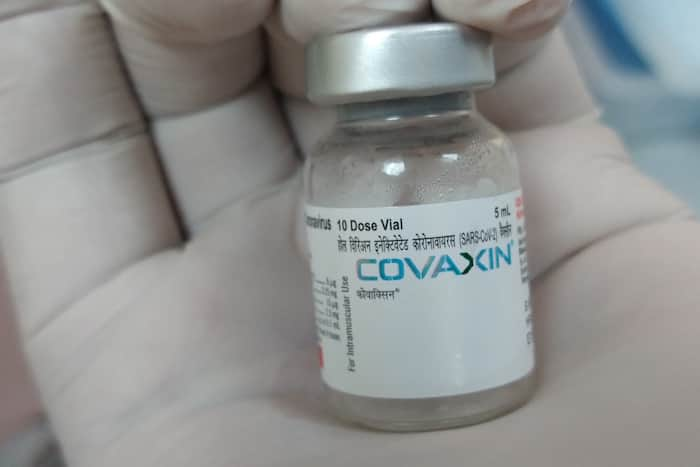Rajiv Bahl highlighted that ICMR was acknowledged for research support without any prior approval of or intimation to ICMR.

ICMR BHU Covaxin: The Indian Council of Medical Research (ICMR), the apex body in India for the formulation, coordination, and promotion of biomedical research, has distanced itself from a study published by the Banaras Hindu University (BHU) on the COVID-19 Covaxin vaccine, citing “serious methodological flaws” and an “erroneous acknowledgment” of ICMR’s support.
Covaxin, with the development name BBV152, is a whole inactivated virus-based COVID-19 vaccine developed by Bharat Biotech in collaboration with the Indian Council of Medical Research-National Institute of Virology.
The Banaras Hindu University (BHU) study titled “Long-Term Safety Analysis of the BBVl52 Coronavirus Vaccine in Adolescents and Adults: Findings from a 1-Year Prospective Study in North India” by Kaur et al., was published in the journal Drug Safety.
Rajiv Bahl, the Director General of ICMR has written a letter to the authors of the paper and editor of the journal Springer Nature asking them to “immediately remove” the acknowledgment to ICMR and publish an erratum as he also flagged the poor methodology and design of the study.
Rajiv Bahl highlighted that ICMR was acknowledged for research support without any prior approval of or intimation to ICMR, which is “inappropriate and unacceptable”.
It is further stated that the BHU study fails to include a control group of unvaccinated individuals, making it impossible to attribute reported events to the Covaxin vaccine.
Additionally, there is no provision for background rates of observed events, preventing an assessment of changes in incidence post-vaccination. The baseline information of the participants is also missing. The tool used for the study is not aligned with the “Adverse Events of Special Interest (AESI)” standards referenced in the paper. Data collection was conducted via telephone a year after vaccination without verification through clinical records or physician examination, introducing significant bias.
The DG, ICMR also noted that similar acknowledgments to ICMR have been made in previous papers without permission, raising concerns about the authors’ practices.
The authors have been urged to immediately rectify the acknowledgment to ICMR and publish an erratum. Additionally, they are asked to address the methodological concerns raised. Failure to do so may prompt ICMR to consider legal and administrative action.
The editor has been asked to retract the paper, which implicitly makes conclusions on vaccine safety that are not supported by evidence.
(With ANI inputs)
Source link



